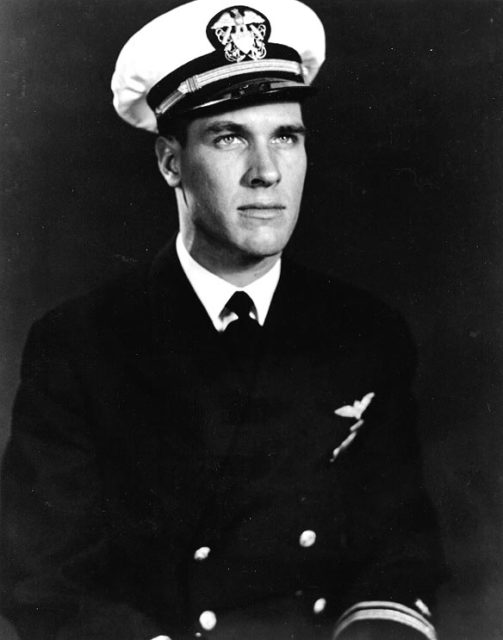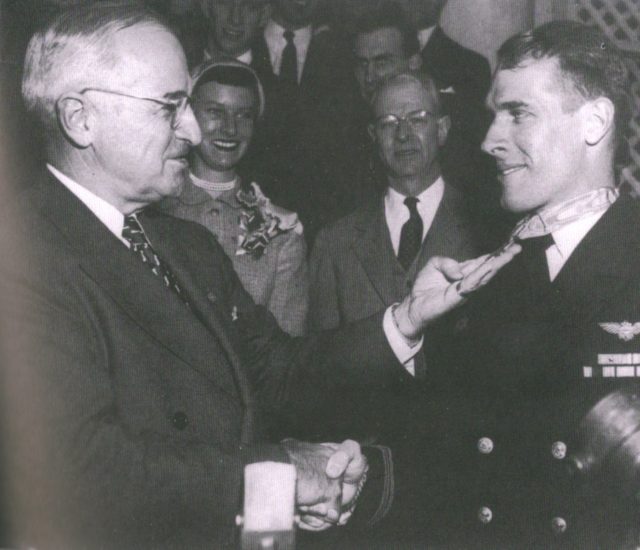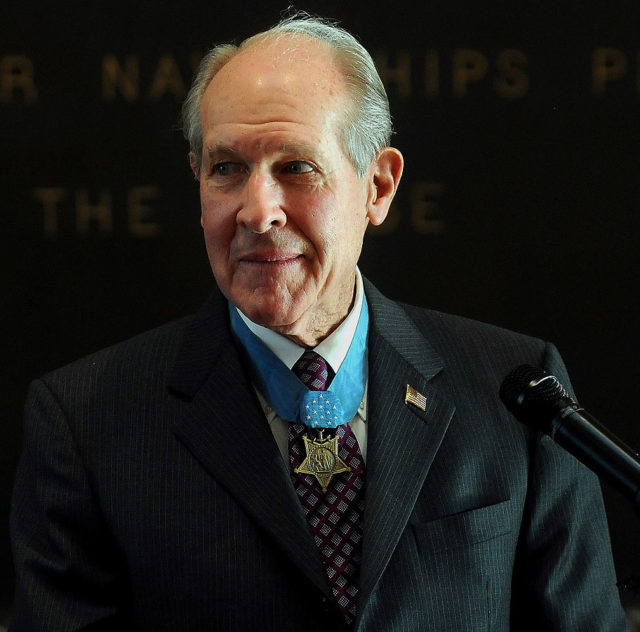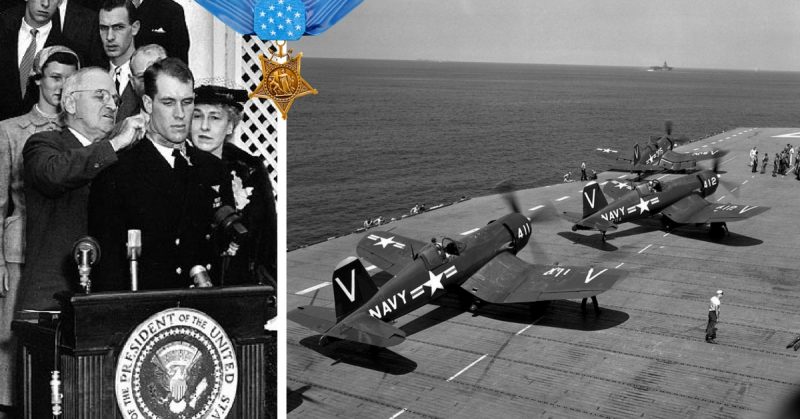It is common in combat for valiant men to risk their lives to help their buddies. Some incredibly courageous people do so in the knowledge they risk certain death. In several instances, a soldier has jumped on a grenade to save his friends. Soldiers have charged across fields of fire to retrieve the wounded. In the case of Thomas Hudner, he intentionally crashed his F4U Corsair into a frozen mountain 15 miles behind enemy lives to save his comrade.
A Career Navy Man
Thomas J Hudner Jr was born on August 31, 1924, in Fall River, Massachusetts into a typical middle-class family. In 1939 he attended the prestigious Phillips Academy where he excelled with interests in athletics and leadership abilities. When the United States entered WWII, his headmaster gave such an inspiring speech that Hudner joined the military. In 1943 he entered the US Naval Academy in Annapolis. Hudner was in good company with such fellow cadets as James Stockdale and future President Jimmy Carter. However, when he graduated in 1946 WWII had ended.
Although Hudner would earn his Medal of Honor as a pilot, he originally had no plans to pursue aviation. He did a short stint on board the USS Helena. Then, after another year in Pearl Harbor as a communications officer, his interest in aviation began to surface. Having completed basic and advanced flight training, Hudner qualified as a Naval Aviator in August 1949. He was assigned to the USS Leyte flying an F4U Corsair. His wingman was none other than the first African-American US Naval Aviator, Jesse Brown.

Take Care of Your Wingman
While Brown was blazing a trail through a military structure that typically omitted African-Americans he encountered the type of vitriol associated with that period. Multiple attempts had been made to flunk Brown in training. He had received threats against his life, and resistance at every step. On board the USS Leyte, however, Brown found the environment more accepting. He was well liked by his fellow pilots and was regarded as an effective and respected pilot.
Hudner was to prove the mantra that a pilot takes care of his wingman at all costs.
On June 25, 1950, ten divisions of North Koreans poured across the border into South Korea whose forces were unable to repel the invasion. The United Nations voted to send military assistance to the area. At the time Hudner’s ship was in the Mediterranean. In August they were ordered to proceed to the theater of war immediately as the pilots on board the USS Leyte were regarded as having more experience than other aircraft carriers.
Arriving in October, Hudner and his pilots set to work. Wracking up sortie after sortie, Hudner and Brown did their worst upon the enemy, destroying communication lines and attacking troops and military installations.
The Chinese joined the fray in November to assist the North Koreans. 100,000 Chinese troops surrounded approx 15,000 American Marines. The pilots were flying dozens of close air support missions every day to protect the area.
Along with four other aircraft, Hudner and Brown were on a search-and-destroy mission near the Chosin Reservoir in harsh winter conditions. Chinese presence was light in the vicinity, but due to the low altitude required for the job, the planes were susceptible to small arms ground fire. One of the pilots contacted Brown by radio advising he could see a trail of fuel and oil leaking from the wingman’s aircraft. For Brown, it was his 20th mission; but it looked like it could be his last.

A Gallant Effort
Unable to control his plane due to the loss of oil pressure, Brown descended into the frozen fields of North Korea crash landing. Helpless as they watched their friend go down, the other pilots could do nothing but keep on the lookout for Chinese entering the area.
Initially, they assumed Brown had perished in the crash, but then they saw him waving from below. His leg had been crushed, and he was trapped underneath the burning fuselage, unable to escape. After attempting to radio instructions to help free his friend, Hudner realized he needed to get on the ground if he was to have any effect in trying to rescue his wingman. Hudner then did the inexplicable. He intentionally crashed his plane nearby and ran to help Brown.
Hudner tried, unsuccessfully, to free Brown from the wreck and then attempted to fill the cockpit by hand with snow to quench the fire. In intense pain and losing blood, Brown was falling in and out of consciousness. A rescue chopper had been deployed and arrived at the scene, but they were still unable to free the wingman. Brown asked them to amputate his leg before he lost consciousness for the last time. His last words were “tell Daisy I love her.” As darkness fell, they were compelled to leave as the helicopter could not fly at night.

Hudner begged the next day to go back and retrieve his friend’s remains, but the threat of a Chinese ambush on the position was high. Commanders could not allow them to lose more pilots or aircraft. Not wanting the body or plane to fall into enemy hands, the US Navy dropped napalm on the position of their fallen comrade. Brown was the first African-American US Navy officer killed in the war.
Hudner served for 27 years in the US Navy and for his actions that day he was awarded the Medal of Honor. When the USS Jesse Brown was commissioned in Brown’s honor in 1973, Hudner was there to give one last dedication to the friend he could not save.
